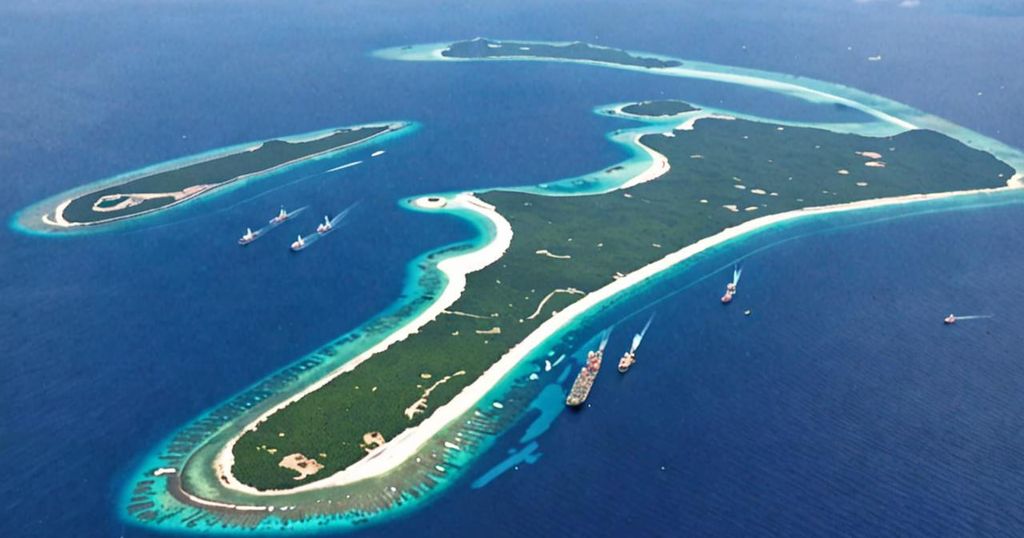Vietnam has substantially increased its efforts to create new land in the South China Sea, according to a recent report by the Center for Strategic and International Studies’ Asia Maritime Transparency Initiative. The report reveals that Vietnam has expanded its dredging and landfill activities, resulting in the establishment of 692 acres of new land since November 2023. This marks a significant increase compared to the 404 acres created in the first 11 months of 2023 and the 347 acres in 2022.
These findings are alarming as they indicate that Vietnam is on track to achieve a record year of island-building in the South China Sea. The area has become a point of contention due to overlapping territorial claims by China, Brunei, Malaysia, the Philippines, Taiwan, and Vietnam. With over $3 trillion in trade passing through the region annually, the potential for conflict in the South China Sea poses a significant risk to global stability.
China, in particular, has been involved in island-building activities in the South China Sea since 2013, asserting sovereignty over substantial portions of the area where Vietnam has been conducting its own land reclamation efforts. The escalation of such activities by multiple countries has raised concerns about the potential for the South China Sea to become a geopolitical flashpoint with far-reaching implications.
It is crucial for the international community to closely monitor the situation in the South China Sea and encourage all parties involved to seek peaceful and cooperative resolutions to their territorial disputes. The impact of any escalation in the region could have serious consequences for global affairs, making it imperative for diplomatic efforts to be prioritized to prevent further tensions.
This latest report underscores the need for continued vigilance and cooperation among nations with a stake in the South China Sea to ensure that the region remains stable and peaceful. As the situation continues to evolve, it is essential for all stakeholders to uphold international law and norms in addressing their competing claims in the area.
In conclusion, the recent surge in Vietnam’s island-building activities in the South China Sea highlights the intricate dynamics at play in the region. With competing territorial claims and the risk of potential escalation, it is imperative for all parties involved to exercise restraint and work towards peaceful resolutions. The international community must remain actively engaged in promoting stability and security in the South China Sea to prevent the situation from deteriorating.

Leave a Reply